-
 Bitcoin
Bitcoin $106,782.3966
-0.72% -
 Ethereum
Ethereum $2,406.7764
-1.16% -
 Tether USDt
Tether USDt $1.0005
0.02% -
 XRP
XRP $2.0918
-1.53% -
 BNB
BNB $644.5785
-0.17% -
 Solana
Solana $141.0925
-0.69% -
 USDC
USDC $1.0000
0.02% -
 TRON
TRON $0.2721
0.18% -
 Dogecoin
Dogecoin $0.1585
-1.26% -
 Cardano
Cardano $0.5497
-1.14% -
 Hyperliquid
Hyperliquid $35.8493
-1.58% -
 Bitcoin Cash
Bitcoin Cash $502.3089
2.20% -
 Sui
Sui $2.7092
3.87% -
 Chainlink
Chainlink $12.8551
-1.85% -
 UNUS SED LEO
UNUS SED LEO $9.0548
0.53% -
 Stellar
Stellar $0.2344
-0.85% -
 Avalanche
Avalanche $17.2676
-0.23% -
 Toncoin
Toncoin $2.8282
0.56% -
 Shiba Inu
Shiba Inu $0.0...01113
-1.14% -
 Litecoin
Litecoin $83.9593
-0.93% -
 Hedera
Hedera $0.1447
0.82% -
 Monero
Monero $306.9022
-2.07% -
 Bitget Token
Bitget Token $4.6358
3.42% -
 Dai
Dai $0.9999
0.01% -
 Ethena USDe
Ethena USDe $1.0001
0.02% -
 Polkadot
Polkadot $3.3211
0.06% -
 Uniswap
Uniswap $6.8775
0.75% -
 Pi
Pi $0.5664
-0.27% -
 Aave
Aave $256.0055
1.28% -
 Pepe
Pepe $0.0...09013
-3.24%
How to choose a digital currency platform with low handling fees? Is there a big difference?
Choose a digital currency platform with low fees to maximize returns; fees vary widely and can significantly impact profits, especially for frequent traders.
May 13, 2025 at 04:56 am
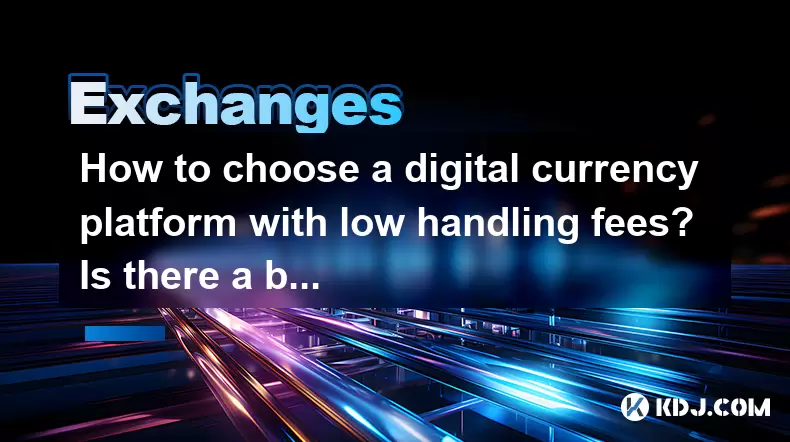
Choosing a digital currency platform with low handling fees is crucial for maximizing your investment returns. Handling fees can significantly impact your profits, especially if you are a frequent trader. In this article, we will explore how to select a platform with low fees and discuss whether the differences in fees are substantial.
Understanding Handling Fees in Digital Currency Platforms
Handling fees, also known as transaction fees, are charges levied by digital currency platforms for executing trades, deposits, and withdrawals. These fees can vary widely between platforms, and understanding their structure is essential for making an informed choice. Typically, handling fees are categorized into trading fees, deposit fees, and withdrawal fees. Trading fees are charged on each transaction, while deposit and withdrawal fees are associated with moving funds in and out of the platform.
Factors to Consider When Choosing a Platform with Low Handling Fees
When evaluating a digital currency platform for its handling fees, several factors come into play:
- Fee Structure: Some platforms use a flat fee model, while others employ a tiered fee structure based on trading volume or account type. Understanding the fee structure can help you estimate your costs more accurately.
- Maker and Taker Fees: Many platforms differentiate between maker and taker fees. Maker fees are typically lower than taker fees, as makers add liquidity to the market, whereas takers remove it.
- Promotions and Discounts: Some platforms offer fee discounts for using their native tokens or for holding a certain amount of cryptocurrency on the platform. Taking advantage of these promotions can significantly reduce your handling fees.
- Withdrawal Fees: The cost of withdrawing your funds can vary greatly between platforms. Look for platforms with low or no withdrawal fees to minimize your overall costs.
Comparing Handling Fees Across Popular Platforms
To illustrate the differences in handling fees, let's compare a few popular digital currency platforms:
- Binance: Known for its competitive fees, Binance offers a tiered fee structure with maker fees starting at 0.1% and taker fees at 0.1%. Users can further reduce these fees by holding BNB, Binance's native token.
- Coinbase: Coinbase charges a flat fee for trading, which can range from 0.5% to 4.5% depending on the transaction size and payment method. Coinbase Pro, however, offers lower fees with maker fees at 0.50% and taker fees at 0.04%.
- Kraken: Kraken uses a tiered fee structure similar to Binance, with maker fees starting at 0.16% and taker fees at 0.26%. Kraken also offers volume-based discounts that can reduce these fees further.
The Impact of Handling Fees on Your Investments
Handling fees can have a significant impact on your investment returns, especially if you are an active trader. For example, if you are trading $10,000 worth of cryptocurrency on a platform with a 0.5% trading fee, you would pay $50 per trade. If you make multiple trades per day, these fees can quickly add up, reducing your overall profitability.
Strategies to Minimize Handling Fees
To minimize handling fees, consider the following strategies:
- Choose the Right Platform: Select a platform that aligns with your trading frequency and volume. If you are a high-volume trader, platforms like Binance or Kraken might be more suitable due to their volume-based discounts.
- Use Maker Orders: When possible, use maker orders to benefit from lower fees. Maker orders add liquidity to the market and are typically rewarded with lower fees.
- Leverage Promotions: Take advantage of any promotions or discounts offered by the platform. Holding the platform's native token or meeting certain trading volume thresholds can significantly reduce your fees.
- Monitor Withdrawal Fees: Be mindful of withdrawal fees, especially if you frequently move funds in and out of the platform. Choose platforms with low or no withdrawal fees to minimize these costs.
Is There a Big Difference in Handling Fees?
Yes, there is a significant difference in handling fees across various digital currency platforms. The difference can range from a few basis points to several percentage points, which can have a substantial impact on your trading costs. For instance, a platform with a 0.1% trading fee is much more cost-effective than one with a 0.5% fee, especially for high-volume traders.
How to Evaluate the Total Cost of Using a Platform
When evaluating the total cost of using a digital currency platform, consider not only the handling fees but also other associated costs such as:
- Spread: The difference between the buying and selling price of a cryptocurrency can also impact your trading costs. Platforms with narrower spreads can be more cost-effective.
- Slippage: This refers to the difference between the expected price of a trade and the price at which the trade is executed. Platforms with better liquidity tend to have lower slippage.
- Customer Support and Security: While not directly related to fees, the quality of customer support and the security measures in place can affect your overall experience and costs. Platforms with robust security and responsive support may justify slightly higher fees.
Steps to Choose a Digital Currency Platform with Low Handling Fees
Here are the steps to choose a digital currency platform with low handling fees:
- Research and Compare: Start by researching different platforms and comparing their fee structures. Use online resources and fee calculators to get a clear picture of the costs involved.
- Consider Your Trading Style: Your trading frequency and volume will influence which platform is best for you. If you are a frequent trader, look for platforms with low trading fees and volume-based discounts.
- Evaluate Additional Costs: Look beyond just the handling fees and consider other costs such as spreads and slippage. Choose a platform that offers the best overall value.
- Sign Up for a Demo Account: Many platforms offer demo accounts that allow you to practice trading without risking real money. Use this feature to test the platform's fees and functionality.
- Read Reviews and Testimonials: User reviews and testimonials can provide valuable insights into the platform's fee structure and overall user experience. Pay attention to feedback regarding fees and customer support.
Frequently Asked Questions
Q: Can I negotiate handling fees with a digital currency platform?
A: Most digital currency platforms have fixed fee structures that are non-negotiable. However, some platforms may offer fee discounts based on trading volume or holding their native tokens. It's worth checking if such promotions are available.
Q: Are there any platforms that offer zero handling fees?
A: Some platforms claim to offer zero handling fees, but they often make up for it through wider spreads or other hidden costs. It's important to carefully review the entire fee structure to understand the true cost of trading on these platforms.
Q: How often do digital currency platforms change their handling fees?
A: Handling fees can change periodically, usually in response to market conditions or competitive pressures. It's a good practice to regularly review the fee structure of your chosen platform to ensure it remains competitive.
Q: Do handling fees vary based on the type of cryptocurrency being traded?
A: Yes, handling fees can vary depending on the cryptocurrency being traded. Some platforms charge different fees for different cryptocurrencies, so it's important to check the specific fees for the assets you plan to trade.
Disclaimer:info@kdj.com
The information provided is not trading advice. kdj.com does not assume any responsibility for any investments made based on the information provided in this article. Cryptocurrencies are highly volatile and it is highly recommended that you invest with caution after thorough research!
If you believe that the content used on this website infringes your copyright, please contact us immediately (info@kdj.com) and we will delete it promptly.
- Smart Investors Navigate the AI Token Frenzy: Bitcoin Switch and Beyond
- 2025-06-28 12:30:12
- Crypto in 2025: How Web3 AI is Poised to Dominate
- 2025-06-28 12:30:12
- Solana's Support Level Holds as MACD Crossover Hints at Potential Bullish Reversal
- 2025-06-28 12:50:12
- Cathie Wood's Ark Invest: Navigating Coinbase (COIN) and SoFi (SOFI) in a Shifting Market
- 2025-06-28 12:53:43
- Crypto 2025: Spotting the Top Coins with Real Utility
- 2025-06-28 12:42:12
- Pepe Price's Wild Ride: Cryptocurrency Milestone or Just Another Meme?
- 2025-06-28 12:42:13
Related knowledge
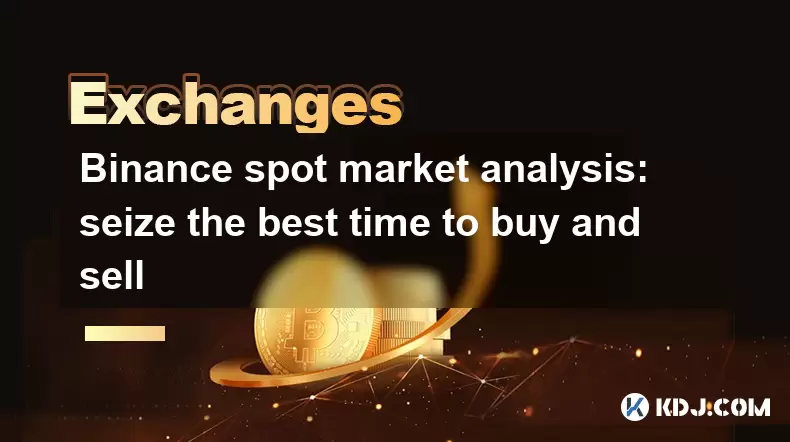
Binance spot market analysis: seize the best time to buy and sell
Jun 19,2025 at 04:56pm
Understanding the Binance Spot MarketThe Binance spot market is one of the most popular platforms for cryptocurrency trading globally. It allows users to trade digital assets at current market prices, making it essential for traders aiming to buy low and sell high. Unlike futures or margin trading, spot trading involves direct ownership of the asset aft...
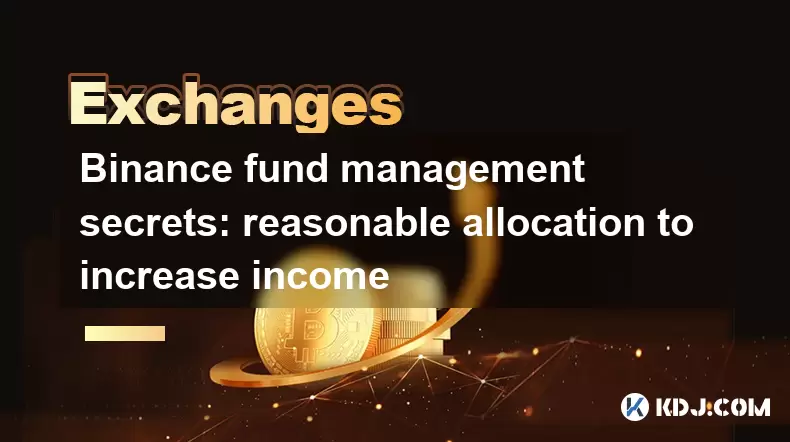
Binance fund management secrets: reasonable allocation to increase income
Jun 22,2025 at 02:29pm
Understanding Binance Fund ManagementBinance fund management involves strategic allocation of your cryptocurrency assets to optimize returns while managing risk. The key to successful fund management lies in understanding how different investment options on the Binance platform can be utilized to create a diversified portfolio. This includes spot tradin...
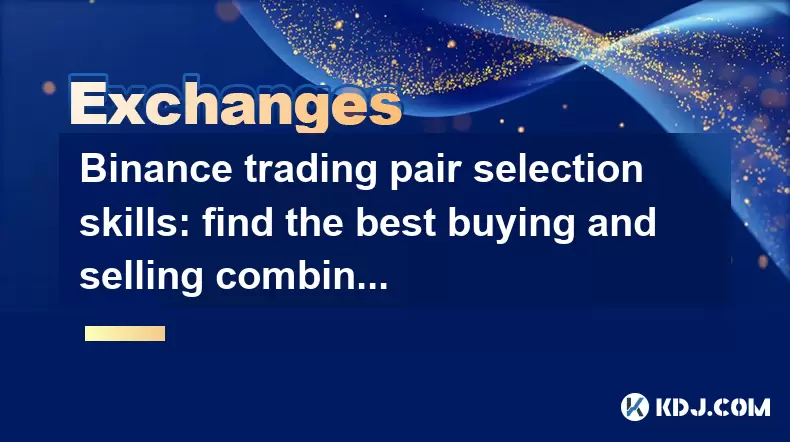
Binance trading pair selection skills: find the best buying and selling combination
Jun 23,2025 at 02:49am
Understanding the Basics of Trading Pairs on BinanceBefore diving into trading pair selection skills, it's essential to understand what a trading pair is. On Binance, a trading pair refers to two cryptocurrencies that can be traded against each other. For example, BTC/USDT means Bitcoin is being traded against Tether. Each trading pair has its own liqui...
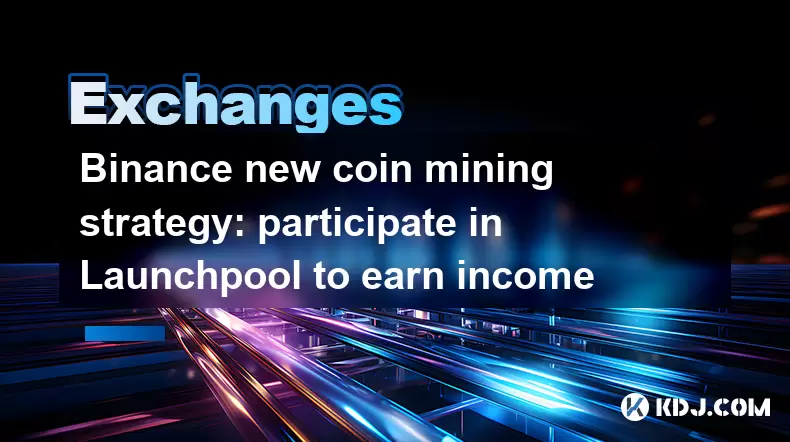
Binance new coin mining strategy: participate in Launchpool to earn income
Jun 23,2025 at 11:56am
What is Binance Launchpool and how does it work?Binance Launchpool is a feature introduced by the world’s largest cryptocurrency exchange, Binance, to allow users to earn new tokens through staking. This platform enables users to stake their existing cryptocurrencies (such as BNB, BUSD, or other supported assets) in exchange for newly launched tokens. T...
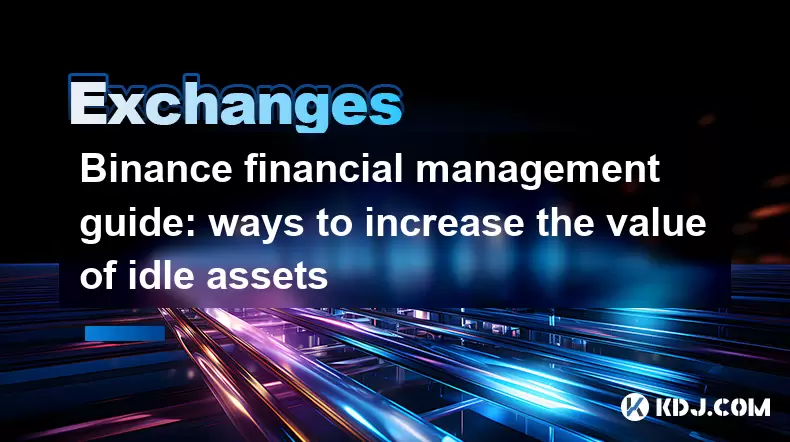
Binance financial management guide: ways to increase the value of idle assets
Jun 19,2025 at 11:22pm
Understanding Idle Assets in the Cryptocurrency SpaceIn the fast-paced world of cryptocurrency, idle assets refer to digital currencies that are not actively being used for trading, staking, or yield farming. Holding these funds in a wallet without utilizing them means missing out on potential growth opportunities. Binance, as one of the leading platfor...
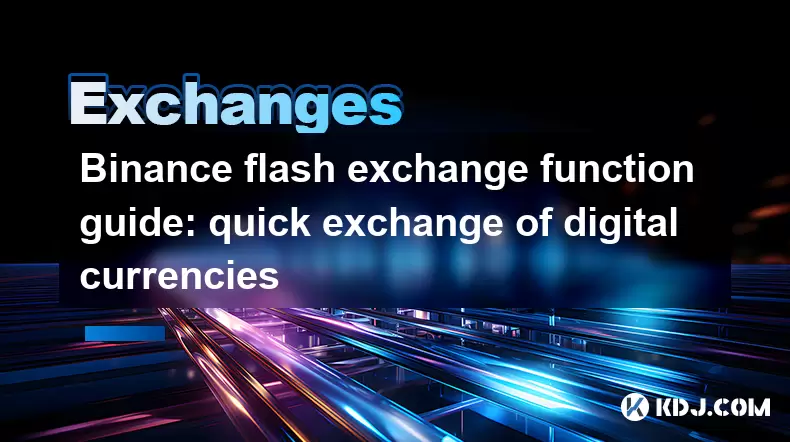
Binance flash exchange function guide: quick exchange of digital currencies
Jun 23,2025 at 12:29pm
What is the Binance Flash Exchange Function?The Binance Flash Exchange function is a powerful tool designed to allow users to instantly swap between supported cryptocurrencies without the need for placing traditional buy/sell orders. This feature simplifies the trading process by offering a direct exchange mechanism, eliminating the requirement to conve...

Binance spot market analysis: seize the best time to buy and sell
Jun 19,2025 at 04:56pm
Understanding the Binance Spot MarketThe Binance spot market is one of the most popular platforms for cryptocurrency trading globally. It allows users to trade digital assets at current market prices, making it essential for traders aiming to buy low and sell high. Unlike futures or margin trading, spot trading involves direct ownership of the asset aft...

Binance fund management secrets: reasonable allocation to increase income
Jun 22,2025 at 02:29pm
Understanding Binance Fund ManagementBinance fund management involves strategic allocation of your cryptocurrency assets to optimize returns while managing risk. The key to successful fund management lies in understanding how different investment options on the Binance platform can be utilized to create a diversified portfolio. This includes spot tradin...

Binance trading pair selection skills: find the best buying and selling combination
Jun 23,2025 at 02:49am
Understanding the Basics of Trading Pairs on BinanceBefore diving into trading pair selection skills, it's essential to understand what a trading pair is. On Binance, a trading pair refers to two cryptocurrencies that can be traded against each other. For example, BTC/USDT means Bitcoin is being traded against Tether. Each trading pair has its own liqui...

Binance new coin mining strategy: participate in Launchpool to earn income
Jun 23,2025 at 11:56am
What is Binance Launchpool and how does it work?Binance Launchpool is a feature introduced by the world’s largest cryptocurrency exchange, Binance, to allow users to earn new tokens through staking. This platform enables users to stake their existing cryptocurrencies (such as BNB, BUSD, or other supported assets) in exchange for newly launched tokens. T...

Binance financial management guide: ways to increase the value of idle assets
Jun 19,2025 at 11:22pm
Understanding Idle Assets in the Cryptocurrency SpaceIn the fast-paced world of cryptocurrency, idle assets refer to digital currencies that are not actively being used for trading, staking, or yield farming. Holding these funds in a wallet without utilizing them means missing out on potential growth opportunities. Binance, as one of the leading platfor...

Binance flash exchange function guide: quick exchange of digital currencies
Jun 23,2025 at 12:29pm
What is the Binance Flash Exchange Function?The Binance Flash Exchange function is a powerful tool designed to allow users to instantly swap between supported cryptocurrencies without the need for placing traditional buy/sell orders. This feature simplifies the trading process by offering a direct exchange mechanism, eliminating the requirement to conve...
See all articles























































































